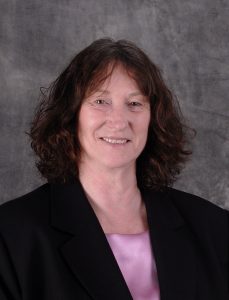Experienced innovator tapped to lead new technology entrepreneurship office at UW–Madison
Bonnie Bachman, an economics professor with a focus on innovation and entrepreneurship from Missouri University of Science and Technology, is the inaugural director of the newly formed Technology Entrepreneurship Office (TEO) at the University of Wisconsin–Madison.
A partnership among the School of Computer, Data & Information Sciences (CDIS); the College of Letters & Science, and College of Engineering, the office will accelerate the commercialization of UW–Madison science and technology advances by increasing the speed and frequency at which UW research is translated into usable technology. TEO will support STEM-based innovations from any faculty, staff or student at UW–Madison.

Bonnie Bachman
In addition to her role as a faculty member, Bachman directed the Missouri University of Science and Technology’s National Science Foundation I-Corps Site Program, an effort that enhanced existing innovation and entrepreneurship programs at the university and expanded participation in its tech-transfer programs. Bachman’s leadership experience also includes corporate entrepreneurship, and she has led research and development departments for several Fortune 100 and 500 firms.
“Bonnie is a leader in leveraging translational research, and her experience spearheading programs for faculty, students and staff is an exceptional foundation as she begins to build and grow the TEO at UW–Madison,” says Ian Robertson, Grainger Dean of the College of Engineering.
Bachman holds a bachelor’s degree in physics from Benedictine University and earned master’s degrees in mechanics and materials science and a doctoral degree in materials science and engineering from Rutgers University.
“I am excited to bring my experience and knowledge to the University of Wisconsin–Madison to strengthen the innovation and entrepreneurial ecosystem,” she says. “The volume and breadth of UW–Madison’s research enterprise drives its reputation as a world-class institution.”
The office has been created to help advance science and technology out of the lab and into real-life applications, where they have the greatest impact. The gap between basic research and widespread implementation is often too long, delaying opportunities to assemble intellectual property and people to launch new business and products.
The office is a natural fit for UW–Madison, which is home to cutting-edge research as well as entrepreneurial graduates and researchers. By helping reduce the gap between discovery and delivery, the office will directly contribute to economic growth and increased competitiveness for Wisconsin.
TEO is positioned to drive impact, including by providing support throughout the entire lifecycle of tech transfer, from discovery of an innovation to launch and growth of a company, and through targeted industry engagements. This new office will also capitalize on existing entrepreneurship programs both on and off campus.
Bachman will lead implementation of entrepreneur/executive-in-residence programs to efficiently form new businesses and explore new solutions for common problems. A key measure of success will be an increase in the number of companies created that successfully commercialize UW–Madison research.
UW–Madison recently ranked 38th in an analysis by Heartland Forward, which evaluated universities that are the most proficient in tech transfer. Tom Erickson, a successful technology entrepreneur and founding director of CDIS, is a champion for accelerating tech transfer and spearheaded efforts to partner in launching the TEO office for UW.
“The talent and research on our campus is truly incredible and second to none, but we have significant ground to make up to be at the forefront of advancing translational research,” he says. “Technology is highly scalable, and large enterprises can come from a single technology. We need to develop tech-transfer concepts that go beyond patenting to improve lives, stimulate economic growth, and realize the Wisconsin Idea.”
The College of Letters & Science is also a key supporter in the creation of the office. “Our leading scientists are demanding more support to commercialize their innovations,” says Eric Wilcots, dean of L&S. “The lifecycle support through TEO will be transformational in its impact on society.”
Bachman’s first day was October 3.



